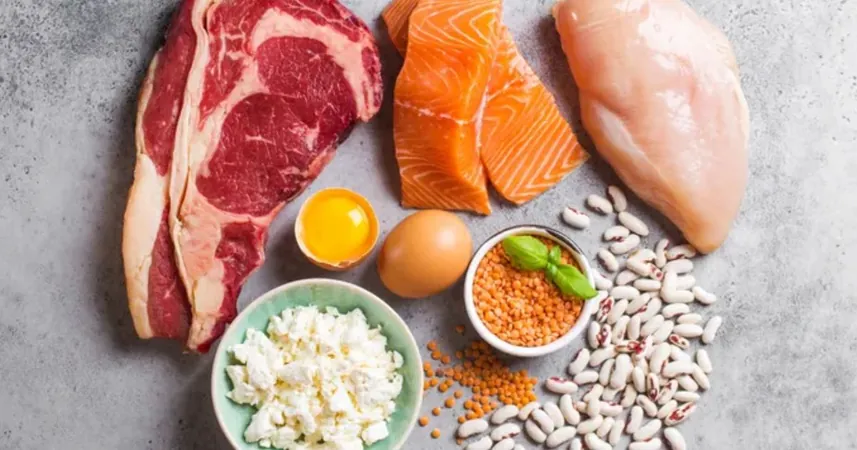
The Essential Guide to Protein Intake by Age: Are You Getting Enough?
2024-11-13
Author: Ying
As we age, our nutritional needs shift, and one of the most crucial components we need to monitor is protein intake. While many are aware of changes in blood pressure and heart health over time, not everyone realizes how much protein their bodies actually require. This need fluctuates significantly from childhood through adulthood into our senior years.
What is the Recommended Protein Intake?
According to the Dietary Guidelines for Americans, the standard recommendation for protein intake is generally set at 0.83 grams per kilogram of body weight. However, this recommendation can vary greatly depending on age and specific life circumstances, such as pregnancy or lactation.
Here's a breakdown of minimum daily protein intake recommendations categorized by age group:
Infants and Young Children:
6 – 11 months: 11 grams
1 – 3 years: 13 grams
4 – 8 years: 19 grams
Adolescents and Young Adults:
Males:
9 – 13 years: 34 grams
14 – 18 years: 52 grams
19 – 70 years and older: 56 grams
Females:
9 – 13 years: 34 grams
14 – 70 years and older: 46 grams
Pregnant or Lactating Individuals:
Any age: 71 grams
Why Older Adults Need Extra Protein
Research from the University of Sheffield highlights that over 50% of individuals aged 65 to 89 fail to meet their daily protein requirements. Some nutrition experts advocate for older adults to increase their protein intake to about 1.2 grams per kilogram of body weight. This higher protein consumption can significantly help counteract muscle loss and strength decline associated with aging, especially when paired with regular exercise.
Dr. Bernard Corfe from the University of Sheffield emphasizes, “Incorporating sufficient protein into your diet can slow muscle mass decline, enhancing overall health as we age.”
How to Boost Your Protein Intake
For those looking to increase their protein consumption, the NHS suggests incorporating a variety of protein-rich foods into your meals. Excellent sources of protein include:
Meat and Poultry: Chicken, turkey, beef, and pork
Fish and Seafood: Salmon, tuna, and shellfish
Dairy Products: Milk, yogurt, and cheese
Plant-Based Sources: Legumes, beans, lentils, nuts, and seeds
Final Thoughts
Protein is a vital nutrient at every stage of life, but it becomes especially critical as we age. Whether you're a parent considering your child's nutritional needs or an older adult looking to maintain muscle strength, ensuring adequate protein intake can lead to a healthier and happier life. If you're uncertain about your protein needs, consulting with a healthcare professional can provide valuable tailored advice to support your health journey. Don’t let insufficient protein hold you back from enjoying life—start making informed choices today!


 Brasil (PT)
Brasil (PT)
 Canada (EN)
Canada (EN)
 Chile (ES)
Chile (ES)
 España (ES)
España (ES)
 France (FR)
France (FR)
 Hong Kong (EN)
Hong Kong (EN)
 Italia (IT)
Italia (IT)
 日本 (JA)
日本 (JA)
 Magyarország (HU)
Magyarország (HU)
 Norge (NO)
Norge (NO)
 Polska (PL)
Polska (PL)
 Schweiz (DE)
Schweiz (DE)
 Singapore (EN)
Singapore (EN)
 Sverige (SV)
Sverige (SV)
 Suomi (FI)
Suomi (FI)
 Türkiye (TR)
Türkiye (TR)